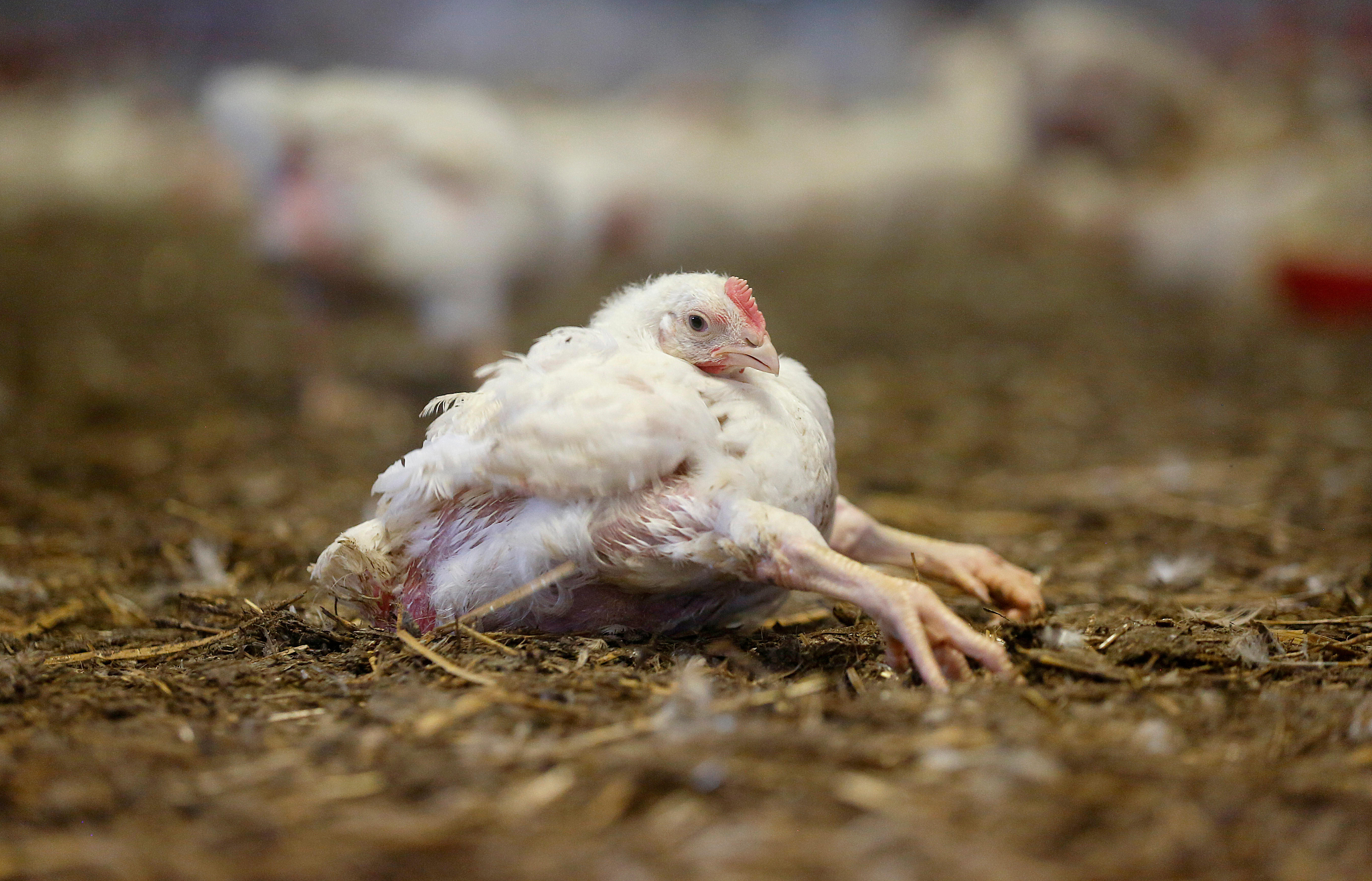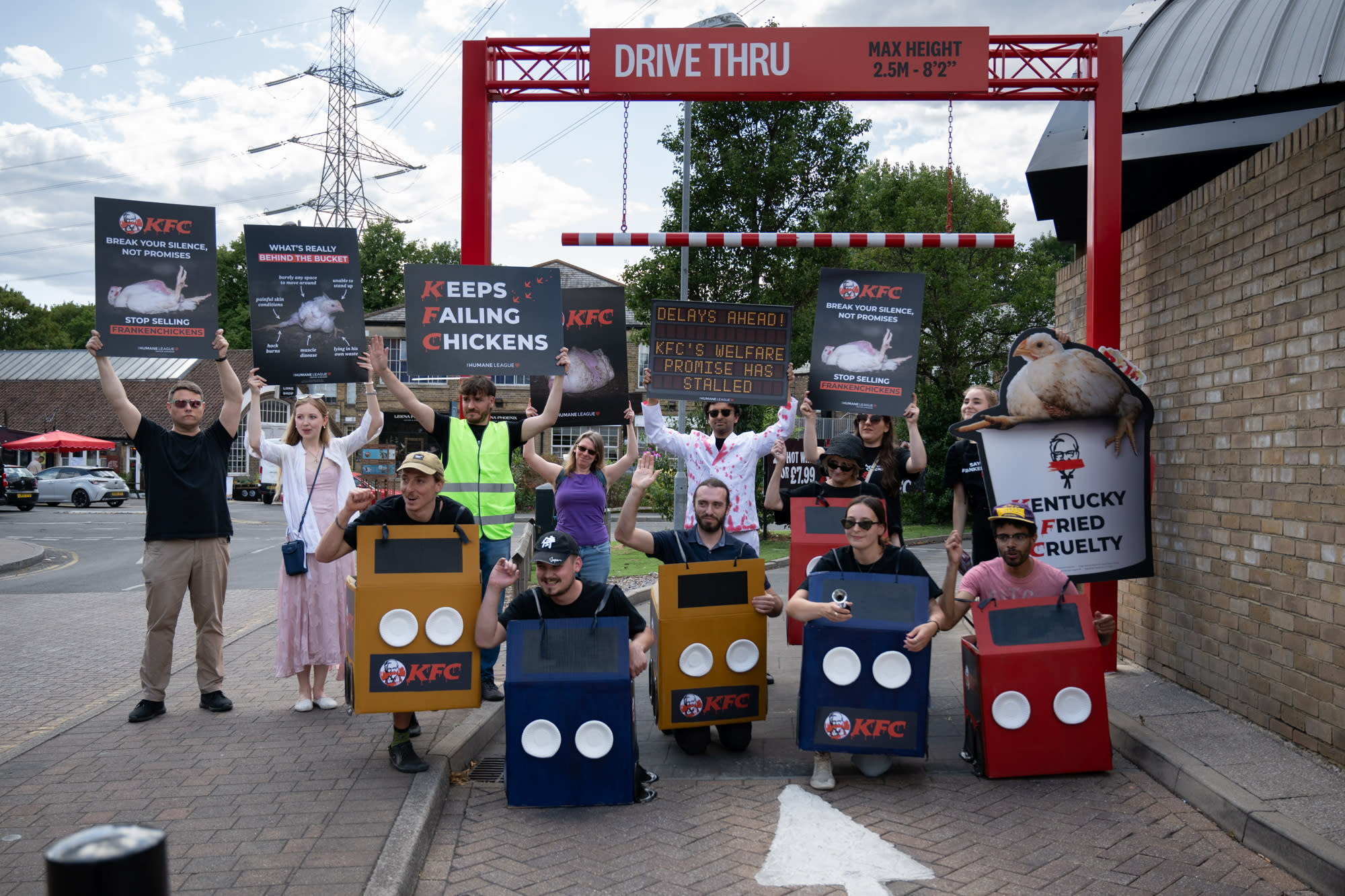New report argues chicken farming reform is vital for the environment





Higher welfare doesn’t just benefit animals, but humans and the world we live in too.

We know that improving the welfare conditions on factory farms has a huge impact on the animals that are forced to live there. But a new report has revealed there are also environmental benefits of moving towards higher welfare breeds of chicken, as recommended by the Better Chicken Commitment (BCC).
Is better welfare worse for the environment?
The report challenges previous claims that the BCC is not sustainable and is worse for the environment than standard factory farming with fast-growing chickens.
These fast-growing chickens, known as 'Frankenchickens', make up around 90% of the over one billion chickens reared and killed for meat in the UK each year. As a result of their rapid growth they can suffer from a wide range of health and welfare issues including heart attacks, organ failure, lameness, bone deformities, muscle diseases, and burns.
Open Cages estimated that approximately 64 million birds died before slaughter on UK farms in 2021, approximately 1 in every 20. And these animals still required food, water, and space - a hugely unsustainable way to produce food.
But it doesn't have to be this way.
The new report demonstrates that slower-growing chickens experience significantly lower levels of health problems. They are also more resilient to heat stress, particularly relevant when heatwaves have killed millions of chickens in the past.
The key findings of the report include:
- Approximately one in twenty fast-growing chickens, or 'Frankenchickens', are culled or die of illness on farm, whereas slower-growing breeds experience around half the rate of mortality.
- The lower soya requirements of slower-growing birds can contribute to significantly lower emissions.
- Globally, industrial poultry farming is the leading cause of resistance developing in bacteria, which the UN predicts will kill as many people as cancer by 2050. Using slower-growing breeds could reduce the amount of antibiotics used by five fold.
- Using slower growing breeds of chicken leads to less likelihood of abnormalities in the meat such as white striping, wooden breast, and green muscle disease. This means that waste is reduced.
It's clear that signing up to the BCC and switching to slower-growing breeds is better for chickens, humans, and the planet. That's why we're campaigning to get companies to make the change.
You can read the full report here.

 Matthew Chalmers
Matthew Chalmers





